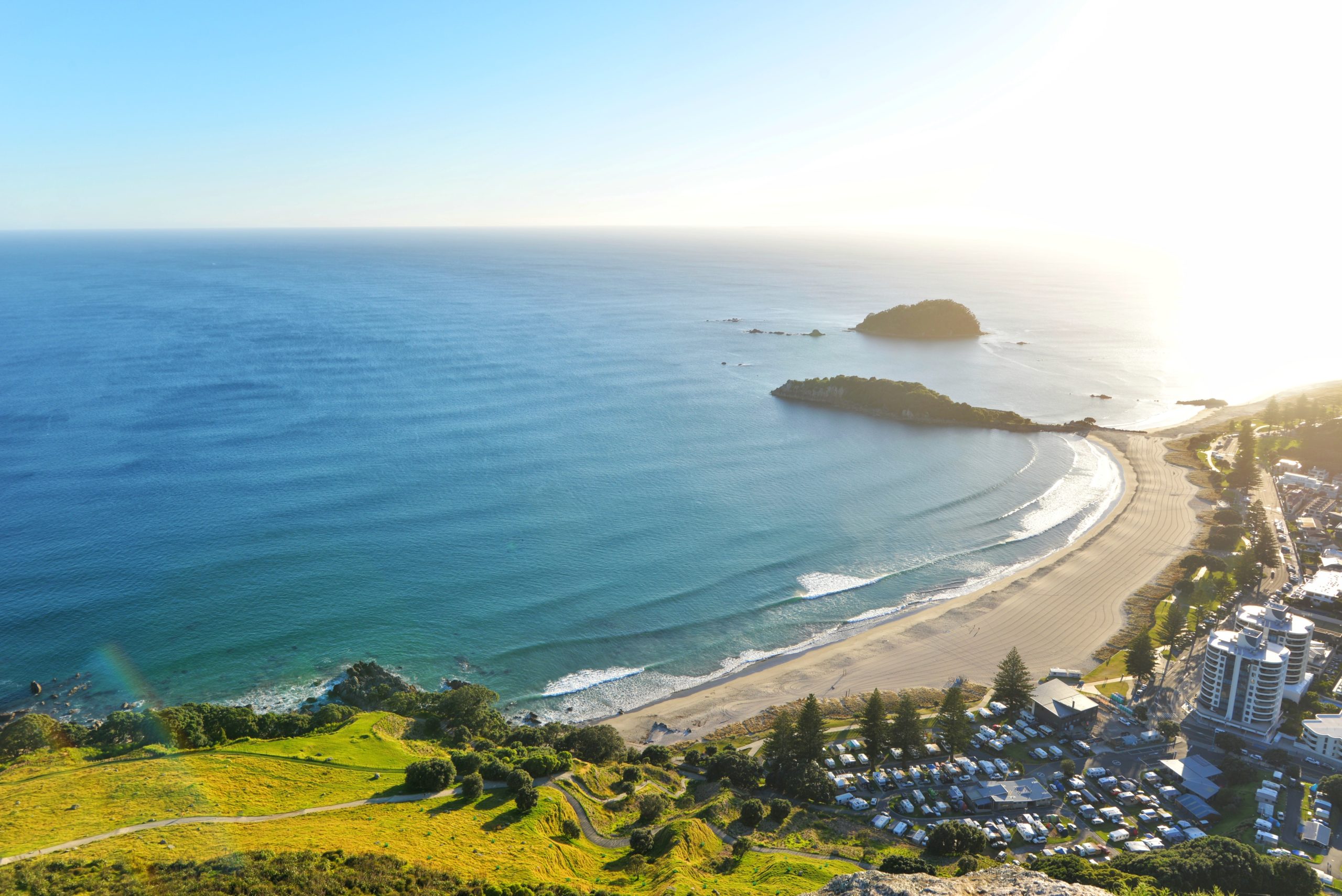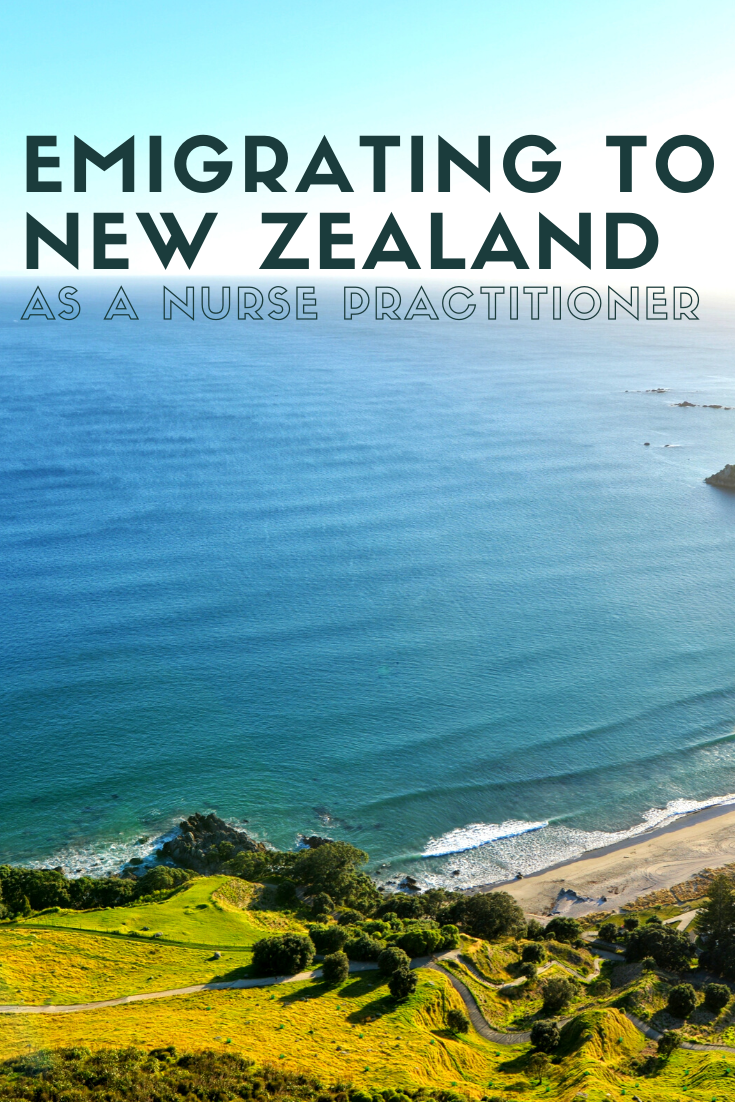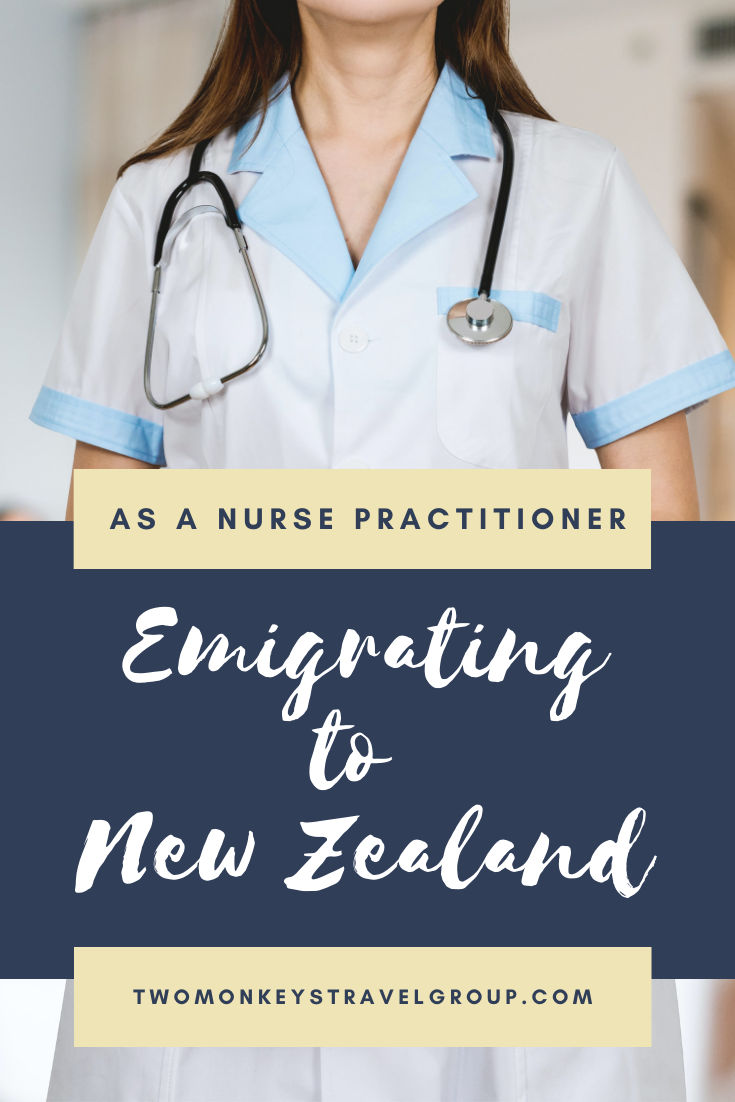Working as a Nurse in NZ – How To Emigrate to New Zealand as a Nurse Practitioner
One of the best ways to truly experience life in another country is to live and work there. By doing this, you learn so much more than if you visit somewhere as a tourist because you get to experience all of the ups and downs of daily life. Plus, you might just find somewhere that is so much more ‘you’ than the country you come from.

Being a healthcare professional is a great way to obtain a visa allowing you to live and work in almost any other country. With the world’s population growing, the demand for healthcare professionals is rising, and skilled professionals are in demand. If you are the holder of a DNP (Doctor of Nursing Practice) or other high-level qualification, it should be possible for you to obtain well-paid work almost anywhere.
New Zealand is an especially attractive destination because it’s a beautiful country with a progressive government and a public healthcare system, which makes the working experience quite different from countries with a privatized healthcare system like America.
Table of Contents
What is a Nurse Practitioner?

A Nurse Practitioner is a Registered Nurse who has completed their DNP (Doctor of Nursing Practice) qualification and therefore have a higher salary and a higher level of responsibility than other nurses.
DNP holding Nurse Practitioners have almost the same level of responsibility and authority for their patients as physicians do. They are able to prescribe medication, examine patients, order diagnostic tests, diagnose illness, and recommend treatment options just as a physician does. Depending on the rules in the country or the state where they are operating, DNP qualified Nurse Practitioners may be able to work independently of a physician. However, they often require sign off on care decisions from a physician. It’s estimated that Nurse Practitioners can carry out between 80-90% of the duties that a doctor can.
Because they begin their careers as nurses before going on to get their DNP, Nurse Practitioners often have a different approach to patient care than physicians do, while at the same time having the qualification to allow them to carry out tasks that would usually only be allowed to be undertaken by a physician. This means that a medical team led by both physicians and nurse practitioners can be very effective, as care decisions are approached from a multitude of perspectives.
How to Qualify to Work as a Nurse Practitioner in New Zealand

To qualify to work as a Nurse Practitioner in New Zealand, you will first need to be registered with the Nursing Council of New Zealand.
The Council has three scopes that you can register under; Enrolled Nurse, Registered Nurse, Nurse Practitioner.
If you are already a qualified Nurse Practitioner, then you should register under the Registered Nurse Scope. You will then be assessed by the nursing council to see if your qualification and experience qualifies you to work as a Nursing Practitioner in New Zealand and to be registered under that scope.
If you are a Registered Nurse, then you will need to register under the Registered Nurse Scope. You will then need to enroll in and complete an approved master’s or DNP program, which must include at least 300 hours of clinical learning. You will also need to have at least four years of nursing experience. Once you have completed your qualification and have the relevant experience, you can apply to register under the Nurse Practitioner scope. You will be assessed to check your competency, and once you have passed, you can register with the nursing council.
If you are not yet a Registered Nurse, then you will need to register as an enrolled nurse. To be able to do this, you will need to be registered with a nursing body from your country, have an internationally recognized nursing qualification, and pass an assessment and training program as regulated by the Nursing council. Once you are an enrolled nurse, you can become a Registered Nurse and then obtain your DNP to become a Nurse Practitioner.
Salary and Lifestyle

Nurse Practitioners are highly qualified, having attained a DNP (Doctor of Nursing Practice), and so as you might expect, they can command a good salary.
The average hourly rate for Nurse Practitioners working in New Zealand is between NZ $28.49 – NZ $59.72. This is a great deal higher than the average salary for Registered Nurses, which is between NZ $24 – NZ $35 and higher than the average salary across all $25.50.
The salary which you can command once you have achieved your DNP and qualified as a Nurse Practitioner will depend on what type of specialism you choose, and also where in the country you choose to work. City hospitals are likely to have better rates of pay than more rural locations.
As in any healthcare position, Nurse Practitioners often work long hours and will likely need to work evenings and weekends. They will generally work as part of a larger healthcare team, acting as a point of authority in making healthcare decisions and in mentoring less experienced Nurses.
Nurse Practitioners generally report a high level of satisfaction with their jobs because of the amount of autonomy they are allowed in making patient care decisions, the focus on learning and development, the excellent salary and prospects, and job security.
Why New Zealand?

If you have a DNP, the chances that your high level of qualification would mean that you could choose any country to live in! So why choose New Zealand? There are oh so many reasons:
- Stunning Scenery – home to mountains, lakes, and glaciers, it’s no wonder New Zealand has been the location for films like The Hobbit and The Chronicles of Narnia, where dramatic backdrops illustrate the fantastical nature of the story. Be sure to explore both the North and the South islands to truly discover all that New Zealand has to offer.
- Quality of Life – New Zealand was rated second in the world for work-life balance. People living in New Zealand definitely work hard, but they also take the time to get out in nature and spend time with their family and friends. It’s also a progressive country, leading the way in politics, health, education, and the environment.
- Climate – The climate in New Zealand is mild all year round, but with the benefit of still experiencing seasons and even enjoying snowy winters! Generally, the climate is not too hot and not too cold, similar to the UK.
- Welcoming People – New Zealand is a country made up of small communities, and as such, the people there are used to looking out for each other. People will go out of their way to be friendly and helpful and are more than happy to make friends.
- Growing Economy – New Zealand’s economy is growing and thriving under its progressive leadership. As the country grows, so will the opportunities afforded to the people who live there.
What is the New Zealand Healthcare System Like?

New Zealand has both a public and a private healthcare system, which means that there is a huge amount of opportunity available to healthcare professionals, particularly those who hold a DNP.
The public health system receives 10% of the GDP in funding, which is higher than average. The public health system covers essential healthcare services like emergency care, life-saving surgery, and hospital care. These things are all available for free to New Zealand citizens and those living there on a valid work visa for longer than two years. Visits to the GP and non-essential care are all privately funded by the individual or through health insurance. DNP qualified Nurse Practitioners could choose whether they preferred to focus on positions in the public or the private, healthcare sector.
New Zealand’s hospitals are known for being well equipped and for being staffed by a workforce that have a positive and friendly outlook. The healthcare system in New Zealand is particularly welcoming to foreign nationals; in fact, 41.5% of the total healthcare workforce comprises professionals who received their training overseas.
Finally, the healthcare system is growing. This means that more and more healthcare professionals are going to be needed, which means growing opportunity and stable job prospects for DNP holders.
Nurse Practitioners Are Skilled Workers

Once you have your DNP and qualify as a Nurse Practitioner, you will find yourself on the ‘skilled migrant’ list, which means you are likely to be granted a visa to work in New Zealand.
Nurse Practitioner is an ANZSCO (Australia and New Zealand Standard Classification of Occupations) level 1 rated occupation. This means that provided you are also earning NZ$25.50 per hour (NZ $53,040 per year based on a 40 hour week), you will be classified as skilled in the ‘skilled migrant’ category, which allows you to apply for a residential visa. As this rate of pay is below the lowest level average for Nurse Practitioners, the chances are that you’ll be fine on this count!
This category of visa allows you to live and work in New Zealand indefinitely and also to access the most publicly funded services.
How to Get Work in New Zealand

So, how do you go about getting work as a Nurse Practitioner in New Zealand? There are a few steps that you will need to follow.
- As discussed previously, the first thing you will need to do is register with the Nursing Council of New Zealand. Initially, Nurse Practitioners will register under the Registered Nurse scope to be assessed by the Nursing Council to ensure that their qualifications and experience qualify them to practice in New Zealand. It’s advisable to carefully read the Nursing Council website’s information to ensure that your qualification is relevant in New Zealand before beginning the application process. The level of qualification required is a master’s, so holding a DNP should mean that you are qualified. If you don’t yet have your DNP, and you’re looking to migrate soon, then it might be better to migrate as a Registered Nurse and then work towards your DNP once you are there. Be sure that you have all of your paperwork proving your education and experience on hand!Once your application is approved, the Council will advise you on how to apply for a practicing certificate, which is required to allow you to practice Nursing in New Zealand. This certificate is renewed annually.
- Once you are registered with the Nursing Council, you can start the visa application process. Your visa application will often be dependent on Council membership, which is why it’s recommended to approach your application in this way. Different visas are available depending on the purpose of your relocation and how long you wish to stay, so be sure to read through the paperwork carefully and determine that you are applying for the correct visa for your circumstances.
- It’s completely legal to start applying for jobs in New Zealand before your visa application has been approved, and in fact, many employers will be able and willing to help you with the process. As soon as you’ve had your membership to the Nursing Council accepted, you can get started looking for jobs.
Where Should You Live?

Before you get started on your job hunt in earnest, it’s worth thinking about where you might like to live in New Zealand! DNP qualified Nurse Practitioners will naturally gravitate towards the areas with the best hospitals as these will provide better opportunities. Still, it’s also thinking about what you want from your life outside of work.
Depending on where you live in New Zealand, you can have a wildly different experience of the country.
If you’re a lover of extreme sports and an outdoor lifestyle, then Queenstown may be the choice for you. Walking around the town, you can clearly see The Remarkables mountain range, which is incredibly popular for skiing and snowboarding. In the summer, Queenstown residents spend their time hiking and biking. When you want a bit of a rest, the town is also home to world-class restaurants and spas.
For people who prefer city life, you can’t go far wrong with Wellington. It’s a little pricey compared with other places in New Zealand, but you’ll find yourself living in a city filled with bars, cafes, and culture. It has great public transport, and also somehow retains a relaxed feel.
Think about the kind of life that you want to live and also the kind of work you want to do with your DNP. For example, DNP holders working in Queenstown are likely to work more with tourists and sportspeople, whereas DNP holders working in hospitals serving more rural family-oriented areas are likely to do more family-based and pediatric work.

Are you on Pinterest? Pin these!


